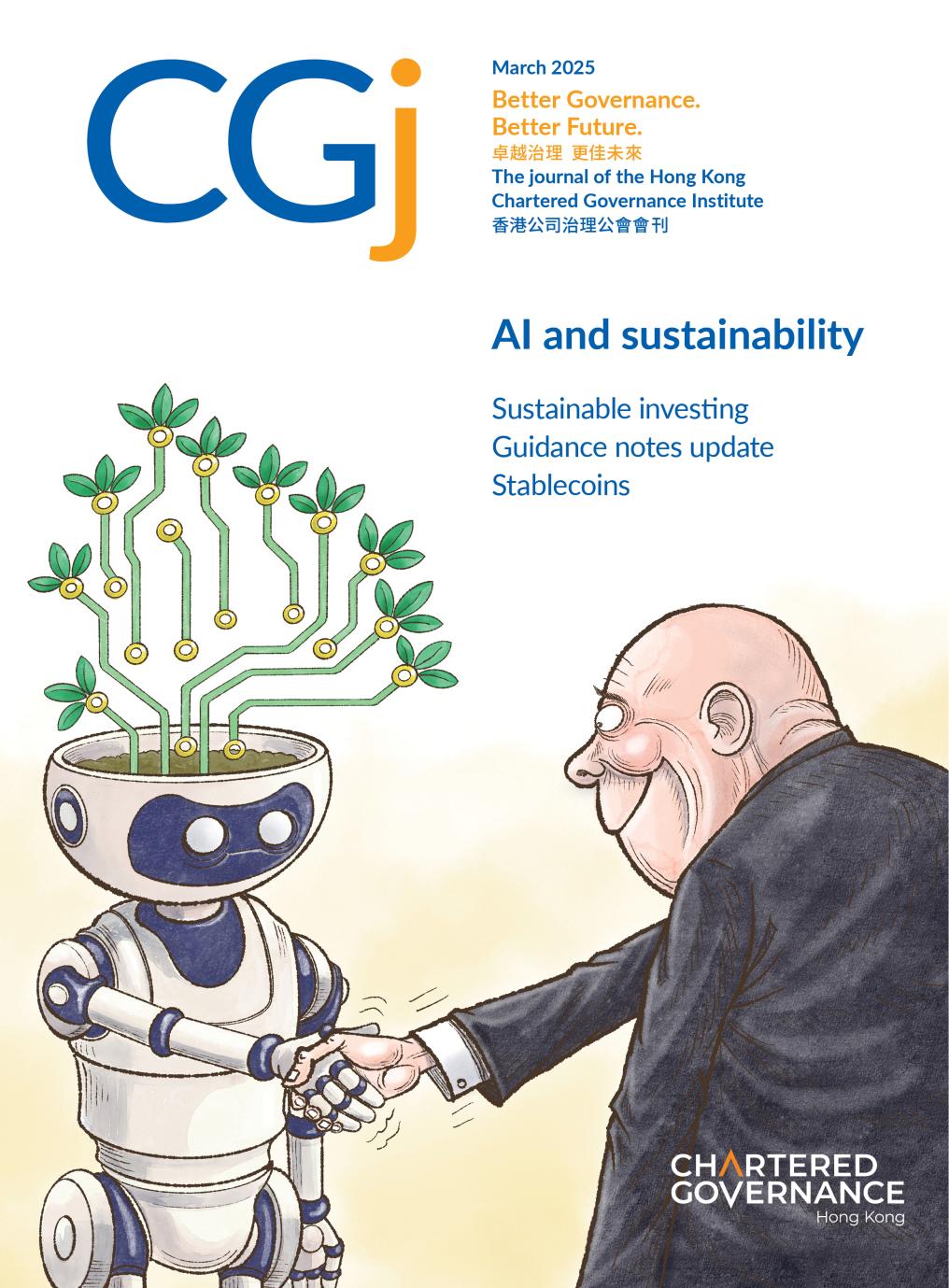
Rethinking board expertise
This edition of CGj looks at the role played by the board in guiding AI adoption within organisations, particularly with regard to sustainability efforts. Our cover story this month makes the point that ongoing director education will be a core part of getting this aspect of good governance right and it is this theme that I would like to address in my message this month.
AI adoption is a good example of how we may need to rethink some common assumptions about how to ensure organisations have informed directors at their helm. Building an informed board is not just about recruiting directors with deep technical expertise in relevant areas. Certainly, having expertise in areas such as AI adoption and sustainability will be a major advantage for boards in today’s operating environment, but the increasing diversity of challenges that directors need to address means that their attitude to continuous learning is as important as the expertise they bring with them on their CVs.
Looking at it from this perspective, an essential ‘qualification’ needed by directors today is a willingness to recognise the limits of their own knowledge and, consequently, the need to embrace continuous learning. This month’s In Focus article further expands on this theme. It looks at the role that ongoing director education plays in strategic decision-making and, of particular interest to readers of this journal, it looks at how governance professionals can facilitate continuous learning for directors.
Governance professionals have a well-recognised role in director education, but it is important to point out that this is not solely a question of how we go about preparing board meeting papers, or of arranging director induction and director ongoing training programmes. This month’s In Focus article offers a broader view of how members of our profession can help curate a comprehensive range of resources and materials to support directors in their ongoing learning journeys. Sometimes this curation, for example, may involve fostering collaboration with outside experts on emerging areas of interest to the board.
Our Institute has stepped up its involvement in director education and this will continue to be a major focus of our work in 2025. We recently launched our Director Training Package designed to enable directors to fulfil the new requirements soon to become effective in Hong Kong’s Corporate Governance Code and Listing Rules. For financial years commencing on or after on 1 July 2025, ongoing training will become mandatory for directors of companies listed in Hong Kong. Moreover, first-time directors (those who have not served as directors of a locally listed company in the three years prior to their appointment) will be subject to specified minimum training-hour requirements.
As a matter of urgency, companies listed in Hong Kong need to review their director training practices to ensure they will be in compliance with the incoming requirements. The focus, however, should not just be on achieving compliance. As discussed above, in the emerging operating environment it is critical for organisations to get this aspect of good governance right. Accordingly, members of our profession, and of course our Institute itself, will continue to play an integral role in facilitating continuous learning for directors.

